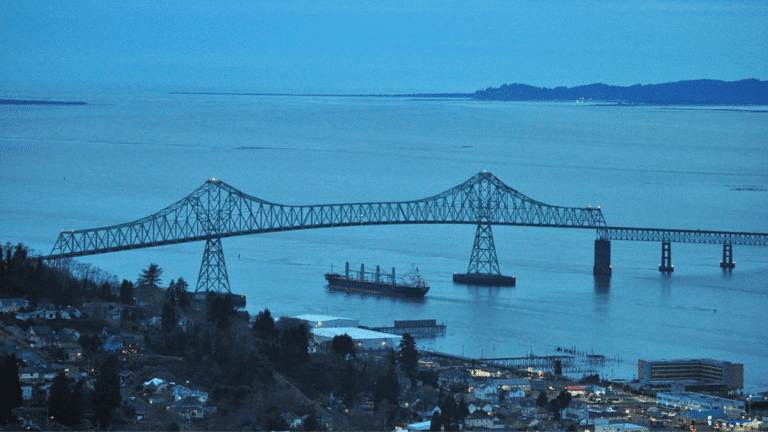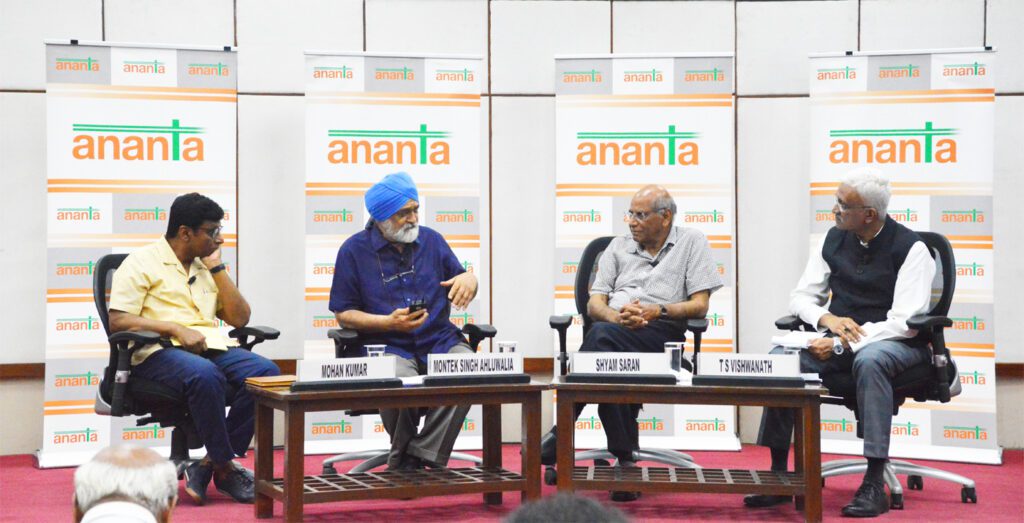
The Indo-Pacific Economic Framework for Prosperity: Key Opportunities & Concerns for India | 30 June | 5:00 PM
On 23rd May 2022, India joined the Quad countries and nine other nations to form the Indo-Pacific Economic Framework for Prosperity (IPEF), an economic collective comprising 12 nations representing 40% of global GDP. These include Australia, Brunei, India, Indonesia, Japan, South Korea, Malaysia, New Zealand, the Philippines, Singapore, Thailand and Vietnam. Despite being a QUAD initiative, the IPEF was unveiled by the US, still the pre-eminent power globally. The IPEF focuses on four aspects, namely: trade, supply chain resilience, clean energy and decarbonisation, taxes and anti-corruption measures. The Framework aims to promote “resilience, sustainability, inclusiveness, economic growth, fairness, and competitiveness” in the economies of the member nations. The primary objective of the IPEF is to make the Indo-Pacific region a hub of global economic growth by introducing commonly-applicable and creative solutions to address the economic demands of a post-pandemic world. India has keenly expressed its interest to collaborate with partner nations towards achieving regional economic connectivity, integration, and boosting trade & investment. India also recently took part in an informal IPEF Ministerial meeting convened by the U.S.A in Paris on 11th June 2022.
The panel discussion identified key opportunities and challenges for India in the new arrangement, including its impact on India’s economic development. The discussion further highlighted geopolitical aspects of the IPEF along with the need to rethink India’s regulatory stance on global trade, sustainability and resilience.

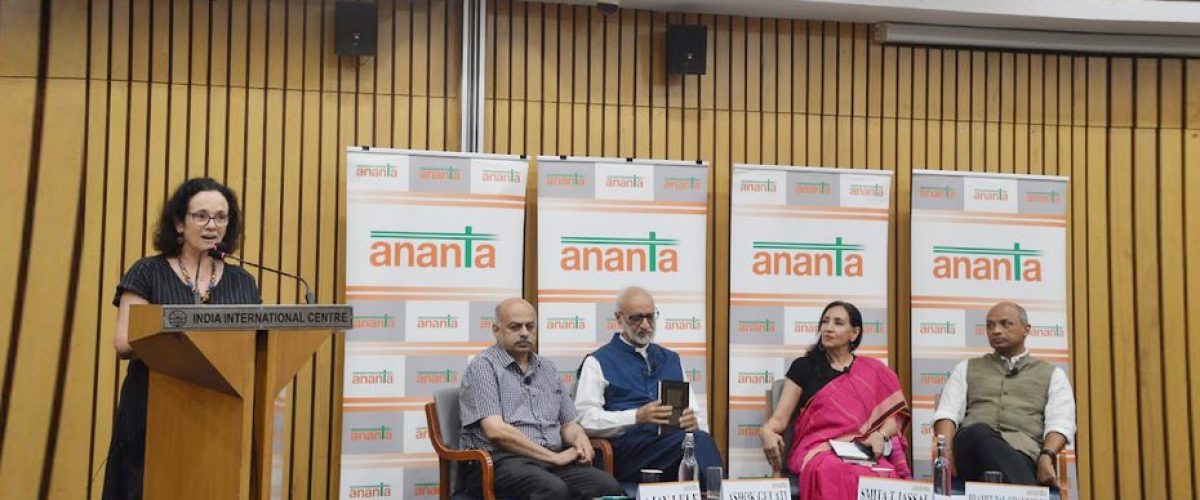
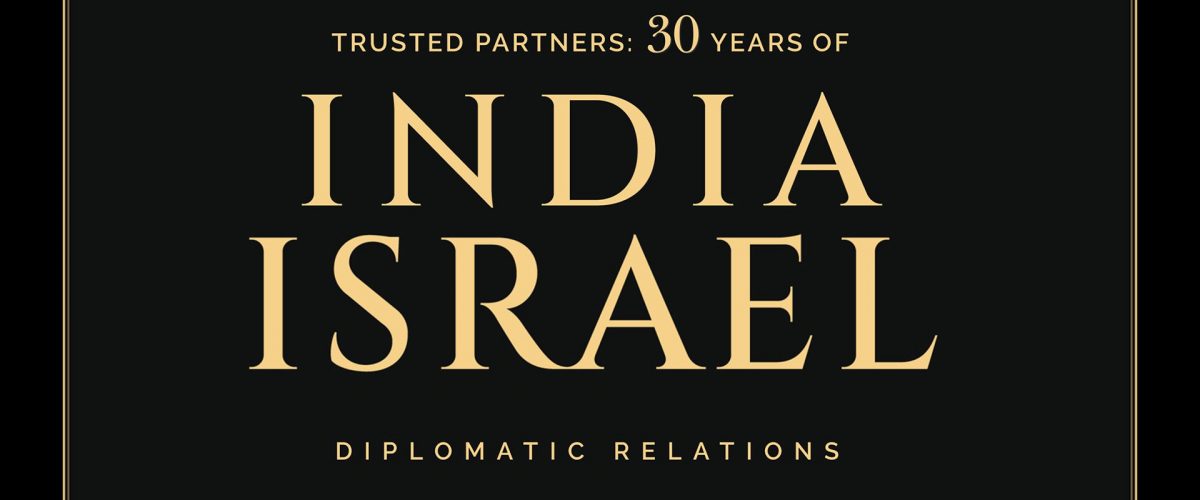
Trusted Partners: 30 years of India Israel Diplomatic Relations
WAR CLOUD OVER UKRAINE
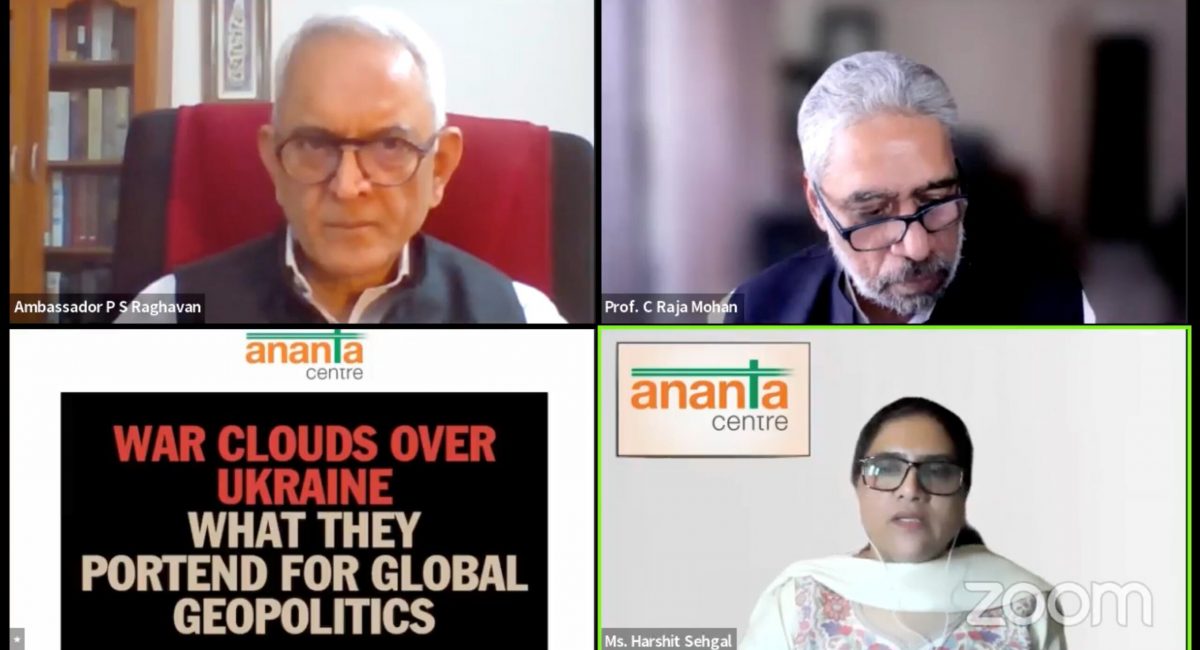
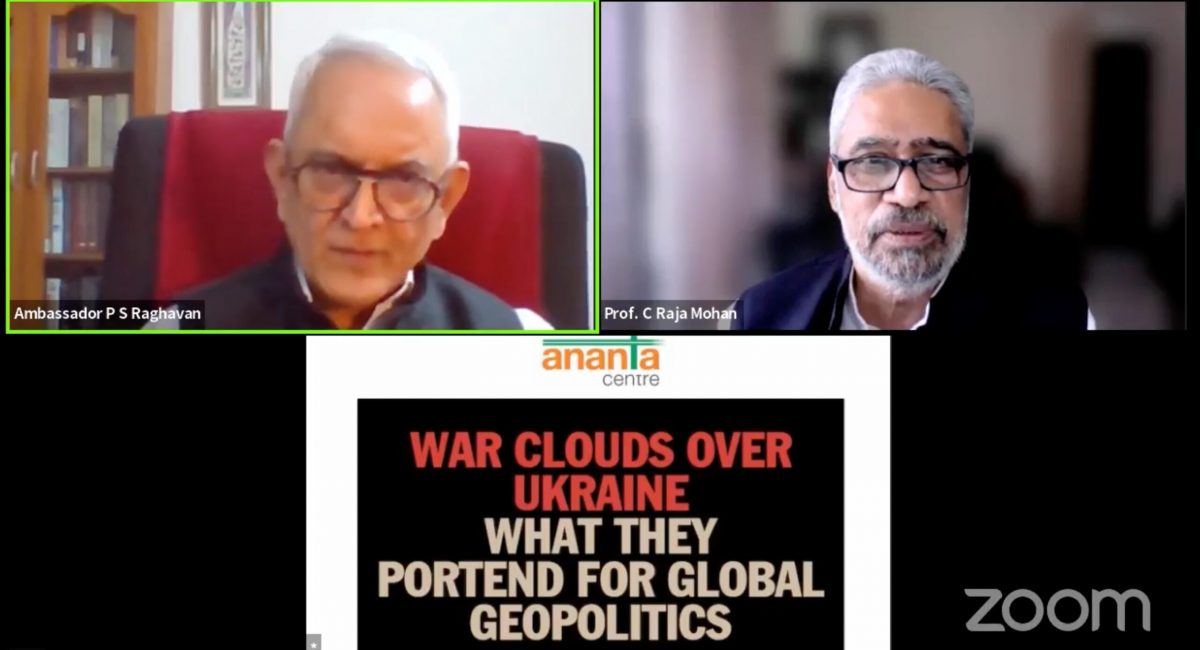
War clouds over Ukraine: What They Portend for Global Geopolitics | 15 FEBRUARY 2022
The current tensions and developments near the Ukrainian border have been a matter of great global concern. These tensions highlight the post-Cold War geopolitical flux which has not yielded to a settled world order. Against this backdrop the Ananta Centre held a digital conversation on “War clouds over Ukraine: What They Portend for Global Geopolitics” between Ambassador P S Raghavan, Former Indian Ambassador to Russia and Prof. C Raja Mohan, Senior Fellow, Asia Society Policy Institute and Visiting Research Professor, Institute of South Asian Studies, National University of Singapore
PUBLIC SESSIONS

Understanding the US-China Tech Race: Implications for India | 1 st December 2021
It is obvious that the competition between the US and China is not just limited to trade and geopolitics, but the technology factor is growing to be more important in the rising conflict between the two countries. But there are areas where there will be healthy competition (Technology and Economic side). Other areas, where there will be in conflict – confront each other, but not let it turn into a hot conflict. However, this plan did not work out with the Chinese. This important session with Ms. Anja Manuel, Co-Founder and Partner, Rice, Hadley, Gates & Manuel LLC, and Director, Aspen Strategy Group and Security Forum chaired by Ambassador Gautam Bambawale, Former Ambassador of India to China, Bhutan, and High Commissioner to Pakistan and Distinguished Fellow, Ananta Centre had also explored how India is benefitting from US-China tech race.



Wendy Sherman, US Deputy Secretary of State in conversation with Jamshyd Godrej | 7 October
US Deputy Secretary of State Wendy Sherman in conversation with Mr Jamshyd Godrej, Chairman, Ananta Centre and Chairman & MD, Godrej & Boyce Manufacturing Co. Ltd. on October 7, 2021. This interaction, streamed live from the US Consulate in Mumbai, marked the end of her first trip to India since taking charge as her country’s second highest ranking diplomat. The Deputy Secretary shared her vision for the future of India US cooperation in vaccines & health security, climate change, trade, Quad, Afghanistan, counter-terrorism, MSME collaboration and much more.
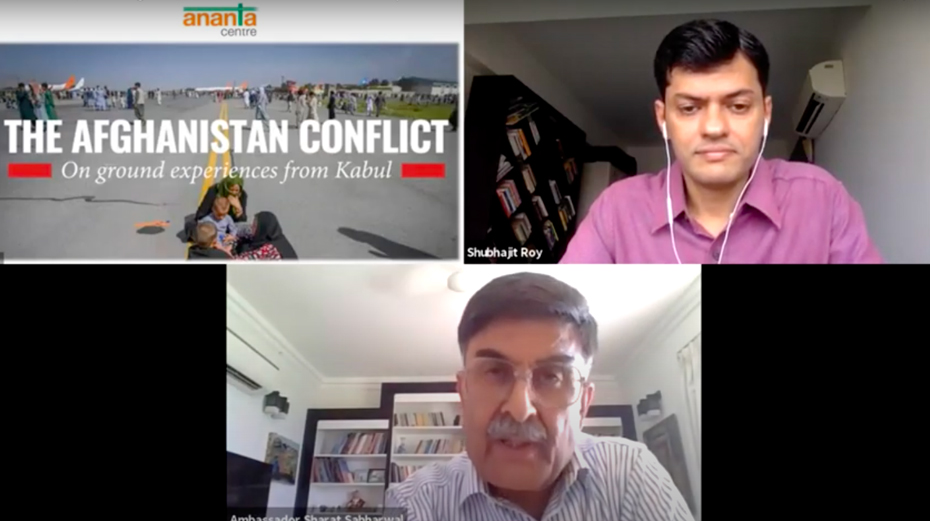
The Afghanistan Conflict: On Ground Experiences from Kabul
Shubhajit Roy landed at Hamid Karzai International Airport on 13th August, 2 days before the Taliban entered Kabul, 1 week after they had seized the southern and western provincial capitals. He was in the city reporting for the Indian Express. On August 15th, as people back home celebrated 75 years of independence, he filed a copy from Kabul “(late in the evening) The Taliban take over the Presidential palace, formalising their capture of Afghanistan. A war of 20 years has come to an end with lightning speed. Coincidentally, at the hotel, the Internet has slowed down, while phone signals too seem to be failing.
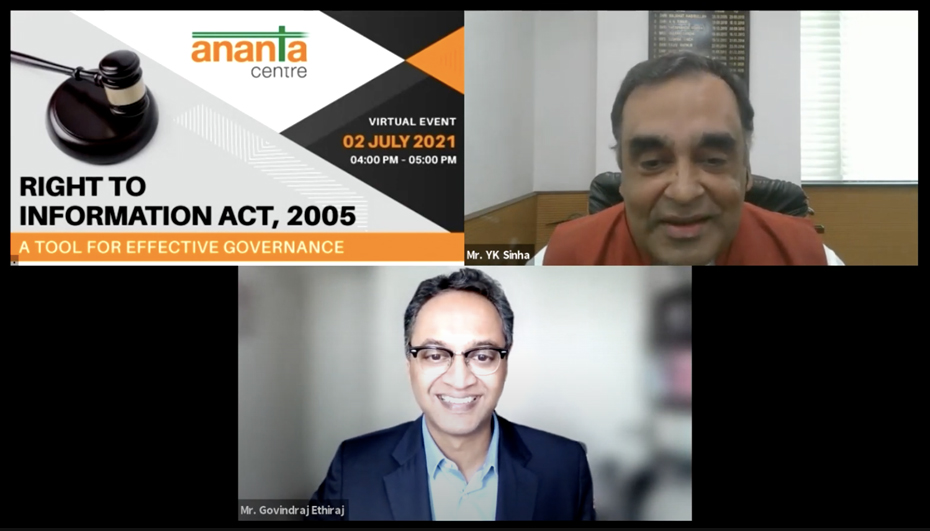
RTI Act, 2005: A Tool for Effective Governance | 2nd July 2021
Information is a basic and inalienable right of every human being. In a democratic country, It is important that citizens have the right to enquire and be able to access the information about their governance. Keeping this as a goal, the Right to Information Act, 2005 was enacted by the Indian Parliament in 2005 in order to promote transparency and accountability in the administration. Right to Information Act works as a mechanism for Indian citizens to maintain confidence in the government through seeking any accessible information from a public authority and create a sense of accountability in the government and its functionaries. It ultimately serves as an essential tool for effective governance
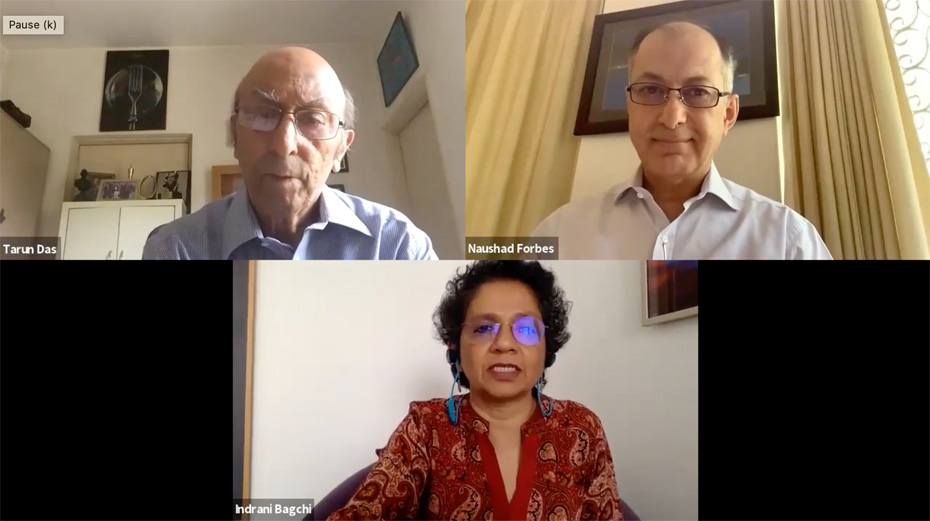
Is it time to Revaluate India's Foreign Policy? | 28 May, 2020
Some important aspects of India’s vis-à-vis the international and regional orders, including the membership of UNSC and NSG; along with the impact of RCEP; and the need to reorient India’s economy was covered by Mr Tarun Das, Founding Trustee, Ananta Aspen Centre and Chairman, Institute of Economic Growth; Dr Naushad Forbes, Chairman, Ananta Aspen Centre; Co-Chairman, Forbes Marshall; and Mr P S Raghavan, Chairman, National Security Advisory Board, Government of India and Former Ambassador of India to Russia. This important discussion was chaired by Ms. Indrani Bagchi, Senior Diplomatic Editor, The Times of India
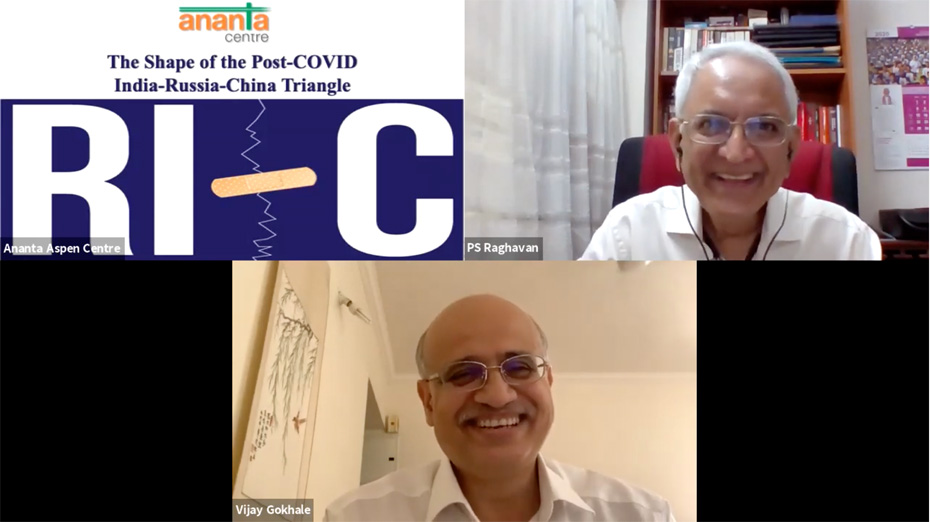
The shape of the post-Covid India-Russia-China triangle | 28 July, 2020
Since its inception in 2005, the evolution of the RIC Dialogue has been influenced by the bilateral relationship of the three nations and by the transformations in the global geopolitical equations. This exciting conversation between Mr P S Raghavan, Chairman, National Security Advisory Board and Former Ambassador of India to Russia and Mr Vijay Gokhale, Former Indian Ambassador to China and Foreign Secretary had key elements of the RIC dialogue and explored how this would impact the post-COVID realignment of global geopolitical equations
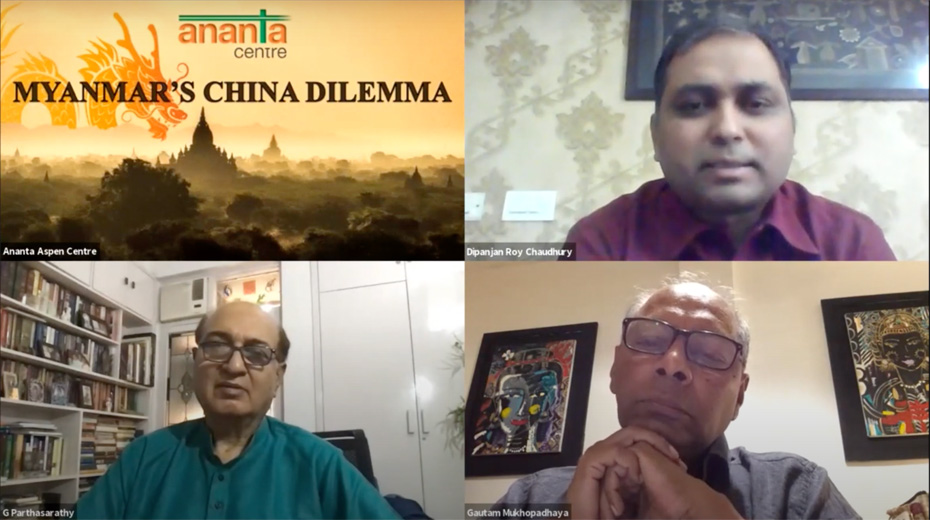
Myanmar's China Dilemma | 21 July, 2020
Under the backdrop of Myanmar’s discomfort with Beijing amid alleged support to the rebel groups in Myanmar by China’s military establishment, this session, moderated by Mr. Dipanjan Roy Chaudhury, Senior Assistant Editor, The Economic Times, Delhi had Mr. Gautam Mukhopadhaya, Former Ambassador of India to Afghanistan and Myanmar and Mr. G Parthasarathy, Chancellor, Central University of Jammu and Former High Commissioner of India to Pakistan provide insights in to the dynamics of China-Myanmar partnership and challenges in that relationship and role of India as a balancing factor.
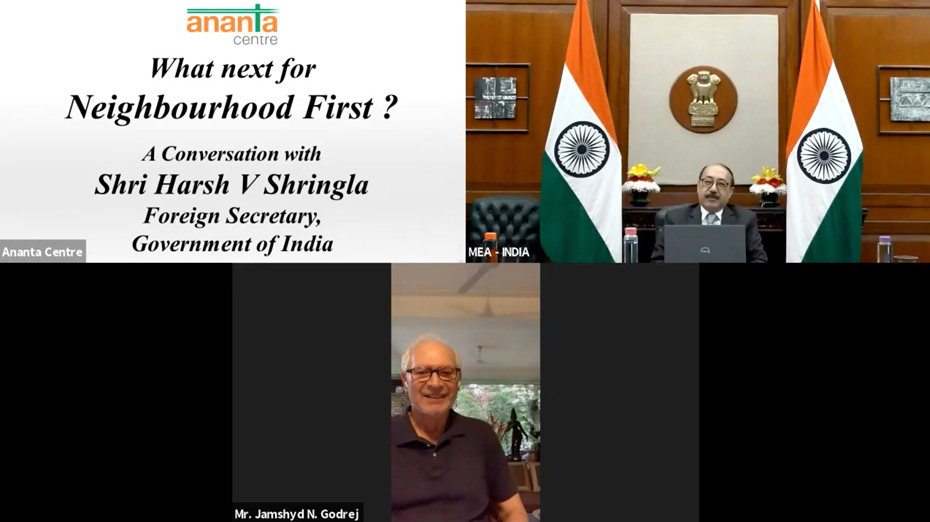
What Next for India's Neighbourhood First? | 15 March, 2021
In his important address, Foreign Secretary Harsh V Shringla covered vital aspects of India’s approach to its neighbours manifested in the vision on “Sabka Saath, Sabka Vikas, Sabka Vishvas”- including the developmental assistance provided by India; the high impact infrastructure projects; developing India as an educational hub for the neighbourhood; and the collaboration on energy and electricity. The session chaired by Mr Jamshyd Godrej, Chairman & Managing Director, Godrej & Boyce Manufacturing Co. Ltd; Chairman, Ananta Centre also featured some of the immediate and long term challenges facing India in the region.



















